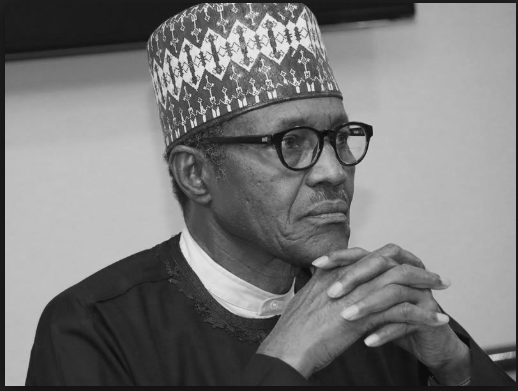
Photo retrieved from Thisdaylive.com
On Friday evening, President Muhammadu Buhari suspended Justice Walter Onnoghen and swore-in Justice Ibrahim Mohammed, in an acting capacity. In a series of tweets posted on his official Twitter account, President Buhari said he was following the orders of the Code of Conduct Tribunal (CCT), where Onnoghen is being prosecuted for financial misconduct.
Although the allegations in the CCT petition “are grievous enough in themselves,” the President said, “the security agencies have since then traced other suspicious transactions running into millions of dollars to the CJN’s personal accounts, all undeclared or improperly declared as required by law.”
The President suggested he expected the CJN, in the light of the accusation, to have recused himself from the nation’s top judiciary job, until the CCT cleared his name. “Unfortunately, he has not done so. Instead, the nation has been treated to the sordid spectacle of a judicial game of wits in which the Chief Justice of Nigeria and his legal team have made nonsense of the efforts of the Code of Conduct Tribunal to hear the allegation on merit and conclude the trial as quickly as possible considering the nature of the times in which we live.”
Buhari’s decision to act on the CCT order was swiftly condemned by several eminent individuals and groups. Mike Ozekhome, a senior lawyer, said it was a “big scandalous shame on the Buhari government”. The Nigerian Bar Association (NBA), in a statement, said the move is an “attempted coup against the Nigerian Judiciary and evident suspension of the Nigerian Constitution by the Executive arm of the Federal Government.” On his official Twitter account, the Senate President, Bukola Saraki, described it as a “blatant act of impunity” and a “retrogressive, uncivilised and despotic measure.”
I spoke to several lawyers after the news broke and they confirmed that, according to the Nigerian constitution, the President could effect the removal of the CJN, but only after gaining the support of a two-third majority in the Senate. However, President Buhari did not sack the CJN. “Power of suspension is not expressly provided in the constituion,” one legal practioner told me, “what is expressly provided is power of removal. There are plausible arguments on both sides.”
President Buhari, since assuming office, has been skeptical of the judiciary’s power to fulfill its responsibilities as an independent arm of government. This explains why he disobeyed court orders to free Nnamdi Kanu and why his government continues to disobey court orders to free Namadi Sambo, former National Security Adviser, and Shi’a Muslim cleric, Ibrahim El-Zakzaky. Last year, at the Annual General Conference of the Nigerian Bar Association in Abuja, Buhari said that the rule of law must be subject to the supremacy of the nation’s security and national interest,” an argument routinely used by dictators across the world, as noted by my colleague, Solomon Elusoji, here.
Last night, Buhari appeared to concede that Onnoghen’s lawyers, who have stalled his trial at the CCT, might be legally correct, “but is it the right disposition for our nation?” he said.
“Nigeria is a constitutional democracy,” he continued, “and one must be, or be seen to be, above the law.”
Again, he is making the argument that only the executive has the right to interpret what is in the best interest of the nation. In a democracy, that is not acceptable. ✚
Jude is a Staff Writer at the Question Marker


